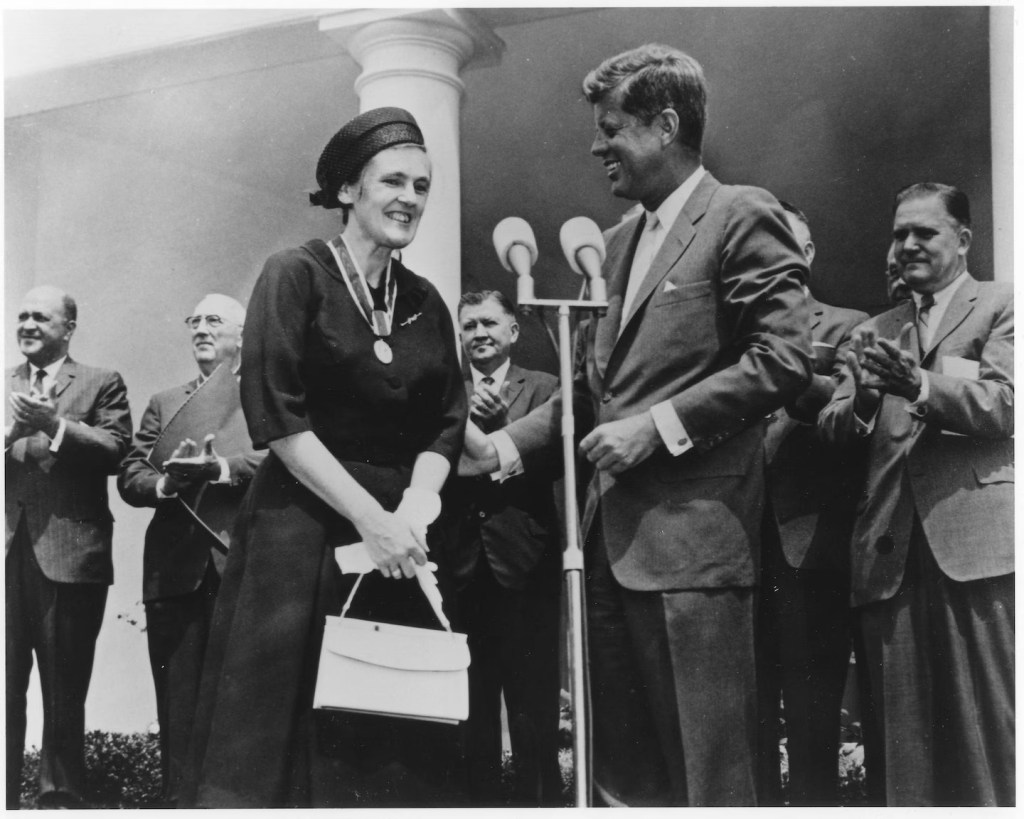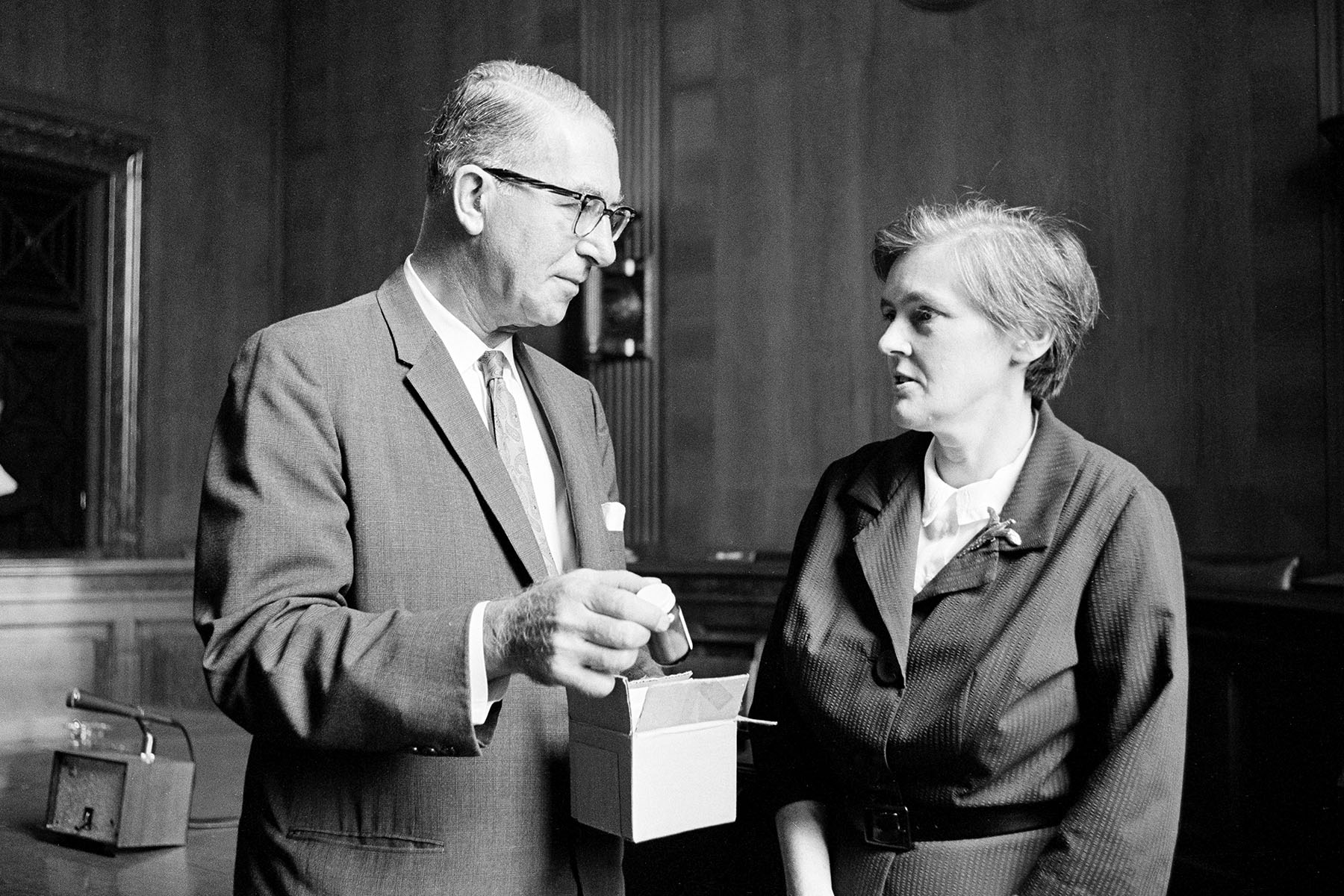Sixty-five years ago this fall, Dr. Frances Oldham Kelsey made history for doing something that might seem remarkably ordinary: she served as the proverbial red tape of the federal bureaucracy. She challenged a drug’s safety claims and repeatedly refused to approve its sale in the United States — a decision that saved lives and prevented widespread harm.
Amid thousands of layoffs in the federal government and an ongoing shutdown, the contributions of civil servants like Kelsey are a reminder of the power of one person.
Kelsey was a new medical officer at the Food and Drug Administration in September 1960 when she received an application to market a sedative drug for pregnant people with morning sickness. The sedative was called Kevadon, but the generic drug was known as thalidomide.
Kelsey, who had multiple degrees and had been trained as a doctor, was skeptical of thalidomide’s safety. At the time, the FDA had a 60-day window to either approve or reject a drug, or it would automatically go to market. Kelsey, who could not prove the drug was dangerous at the time but also knew there wasn’t information shared about its safety, made repeated requests for scientifically reliable evidence from the pharmaceutical company — a process that effectively reset the 60-day window under the guise that the application was incomplete.
“Here was a drug that looked like it should be no problem, but at the same time there was just a feeling that there was something in the data or the absence of data that was a cause of concern,” Kelsey said in an interview years later, according to the Lost Women of Science podcast that featured her story. The pharmaceutical firm, the William S. Merrell Company, grew increasingly frustrated with her.
But the side effects of thalidomide began to surface in Europe and other countries. As Kelsey stonewalled at the FDA, reports were emerging about children whose severe birth deformities were linked to the drug. (This also did not fully prevent harm in the United States, where several hundred pregnant people took thalidomide through samples that had been distributed to doctors’ offices.)
Kelsey actions inspired new regulatory legislation for drugs, including more requirements that a pharmaceutical company ensure a drug is safe and effective. She was awarded the nation’s highest federal civilian service award — only the second woman at the time to get the recognition.

“Her exceptional judgment in evaluating a new drug for safety for human use has prevented a major tragedy of birth deformities in the United States,” President John F. Kennedy said in 1962 during a ceremony at the White House.
Kelsey later led efforts at the FDA to better test and regulate new drugs. Her work over a 45-year career with the agency included rewriting regulations and ensuring the scientific integrity of data. She retired in 2005 and died in 2015 at 101.
“She’s the embodiment of someone who took her responsibilities seriously and [impacted] not just Americans, but people worldwide through the regulatory structure that emerged from her,” Leslie Ball, Kelsey’s successor, told a publication under the University of Chicago Medicine.
-
Read Next:
Yet Kelsey’s actions were nearly stymied by her gender. In the 1930s, when she went by her maiden name, she wrote a letter to the head of the pharmacology department at the University of Chicago about a research assistant opening.
She was offered a research assistantship and scholarship at the university’s PhD program, which would lead to a master’s degree in pharmacology. But the initial acceptance letter addressed her as “Dear Mr. Oldham.” In an autobiographical reflection available on the FDA website, Kelsey wondered if the spelling of her first name had confused her future boss.
“I knew that men were the preferred commodity in those days. Should I write and explain that Frances with an “e” is female and with an ‘i’ is male?” she said through a series of interviews.
Her pharmacology professor at McGill University, where she had received a bachelor of science degree and a master’s, told her, “Don’t be ridiculous. Accept the job, sign your name, put Miss in brackets afterwards, and go!”
“That is what I did,” Kelsey said, “and, to this day, I do not know if my name had been Elizabeth or Mary Jane, whether I would have gotten that first big step up. My professor at Chicago to his dying day would never admit one way or the other.”






